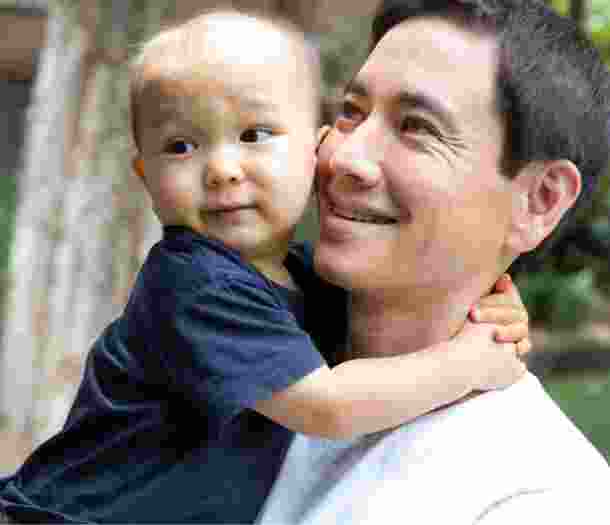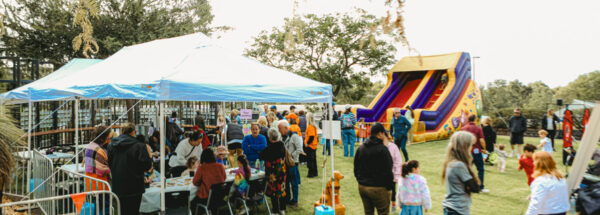On this page:
What is the Early Childhood Service?
Building a solid foundation for your child's future.
The Early Childhood Service provides support for you and your child, from birth to six years of age (inclusive). Throughout these crucial early years, our team of experienced specialists offer practical and emotional support to build a solid foundation for your child’s future.
The early years of a child’s life are so important. By exploring, interacting and playing, children learn about the world and those around them. We can provide the tools, knowledge and support you need to encourage your child’s growth and development.
You’ll have access to a range of experienced team members who are qualified to work with children from ages 0-6 (inclusive).
This includes:
- an Early Childhood Education Key Worker
- a Paediatric Occupational Therapist
- an Orthoptist
- an Orientation and Mobility Specialist
- Assistive Technology specialists
Your child’s team is uniquely trained with extensive knowledge of blindness and low vision. Every team member is highly experienced in providing best-practice support for children with blindness or low vision.
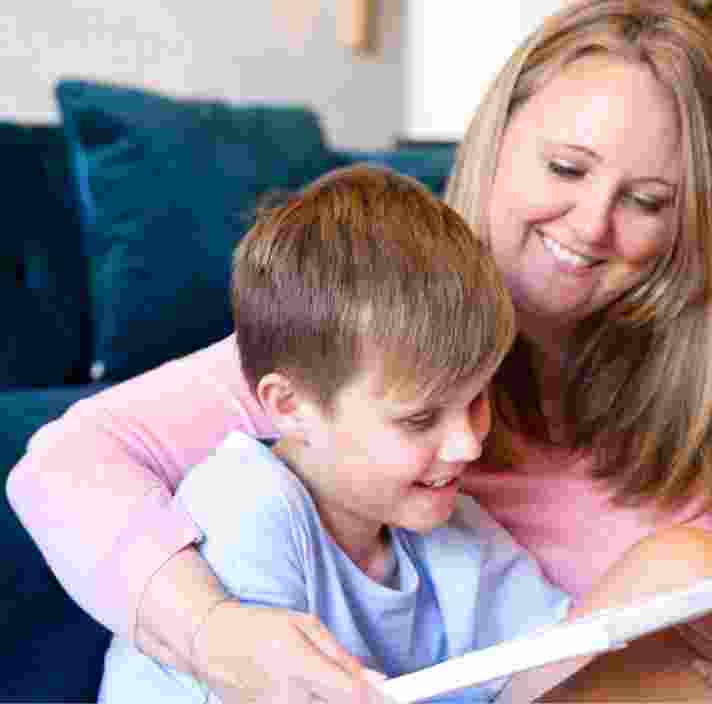
How does the service work?
Comprehensive support.
If you engage with the Early Childhood Service, you and your child will partner with a Guide Dogs Victoria Early Childhood Educator.
They’ll take a three-step approach to your child’s development and support you along your whole journey.
The steps consist of:
- An initial consultation
- Collaboration with immediate or extended family, support networks such as the Kindergarten teacher and health professionals,
- Skill development which includes, sensory development, cognitive development, fine more skills social and emotional, language, pre-braille to support literacy skills
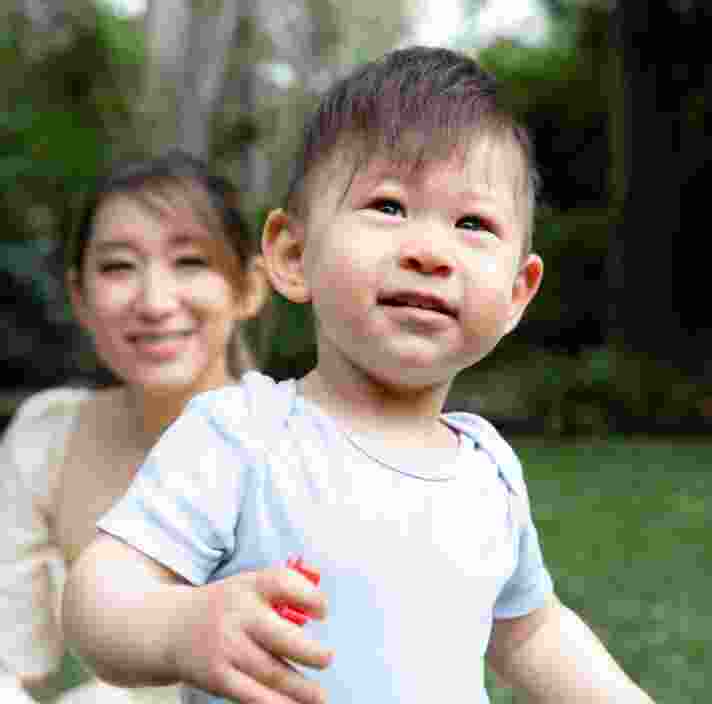
Learn more about our collaborative approach
We'll assist you to create a caring network of support.
Dealing with multiple specialists and health professionals can be overwhelming. That’s where your Guide Dogs Victoria Early Childhood Educator can offer support.
Your Early Childhood Educator will share information and network with others on your behalf. This can include connecting with extended family, support networks, and other professionals in your child’s world (like teachers or kindergarten staff). This approach ensures everyone has the information, skills and resources they need to support you and your child through these crucial early years.
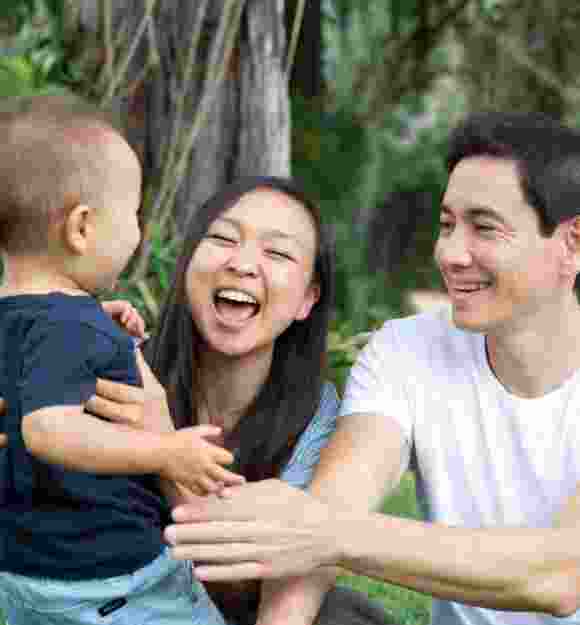
This can help you by:
- Streamlining communications
- Avoiding duplicate information, or having to tell your story multiple times
- Providing a more holistic and consistent approach to support
Our Early Childhood Educators can also work with your family to identify any areas of development where your child will benefit from additional support. For example, creating a safer and more inclusive environment at home or out in the community.
We can also support your child as they transition into school, and provide advocacy and referrals to other agencies.
About the consultation process
Getting to know your family's story.
Before we support you and your child with skills development, it’s important we get to know your story.
We shall chat with you to learn about your child’s functional vision (the amount of vision they are able to use in daily life), their environments, and the goals you wish to achieve with your child. This ensures our program is carefully tailored to your situation and supports any unique development needs or outcomes for your child.
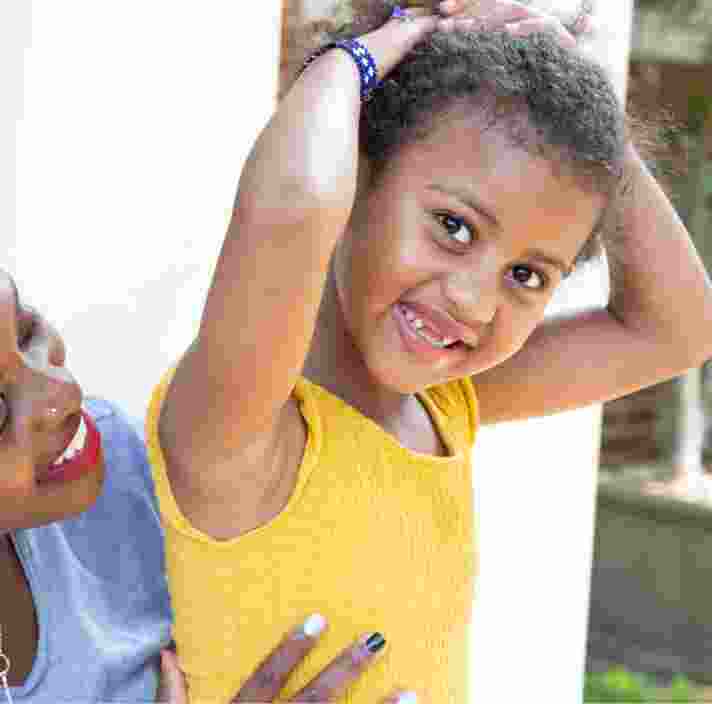
What skills can my child learn?
Skills to understand and interact with the world.
Along with key play skills, your child can develop their sensory skills, hearing, identifying things through smell and focusing on touch which is essential for pre- and early-Braille skills. All of these skills assist your child to better understand and interact with the world.
Your child will learn in an interactive and safe environment, using fun play activities to reach different milestones, achieve goals, and explore their potential.
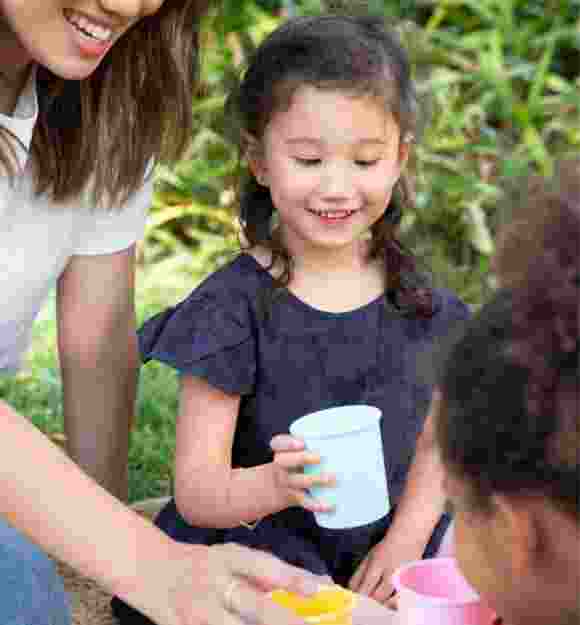
The Early Child Service can involve some, or all, of the following focus areas:
- Cognitive development: such as learning to name, sort, and match shapes, objects, or animals, and develop memory skills.
- Social and emotional: encouragement of imaginative play, like ‘shopkeepers’ or ‘tea parties’ to promote interaction with others, sharing of toys, and taking turns.
- Language, pre-Braille and literacy skills.
- Developing a sense of touch—which is an essential preparation for future Braille users—using a slope board to aid in reading and writing, and encouraging literacy through audio, Braille, and large ‘easy to see’ books.
- Fine motor skills: building a tower of blocks, threading beads, or dressing a toy.
- Gross motor skills: through active play and games such as jumping, skipping, or kicking a ball.
These are just some of the skills your child can develop. We always tailor our support to assist in reaching the identified goals.
We have a large collection of resources, which includes a range of toys, books, and equipment, that we can loan to support your child’s development.
Ready to continue?
Seems like you have filled this form earlier. Let’s pick up where you left off.
